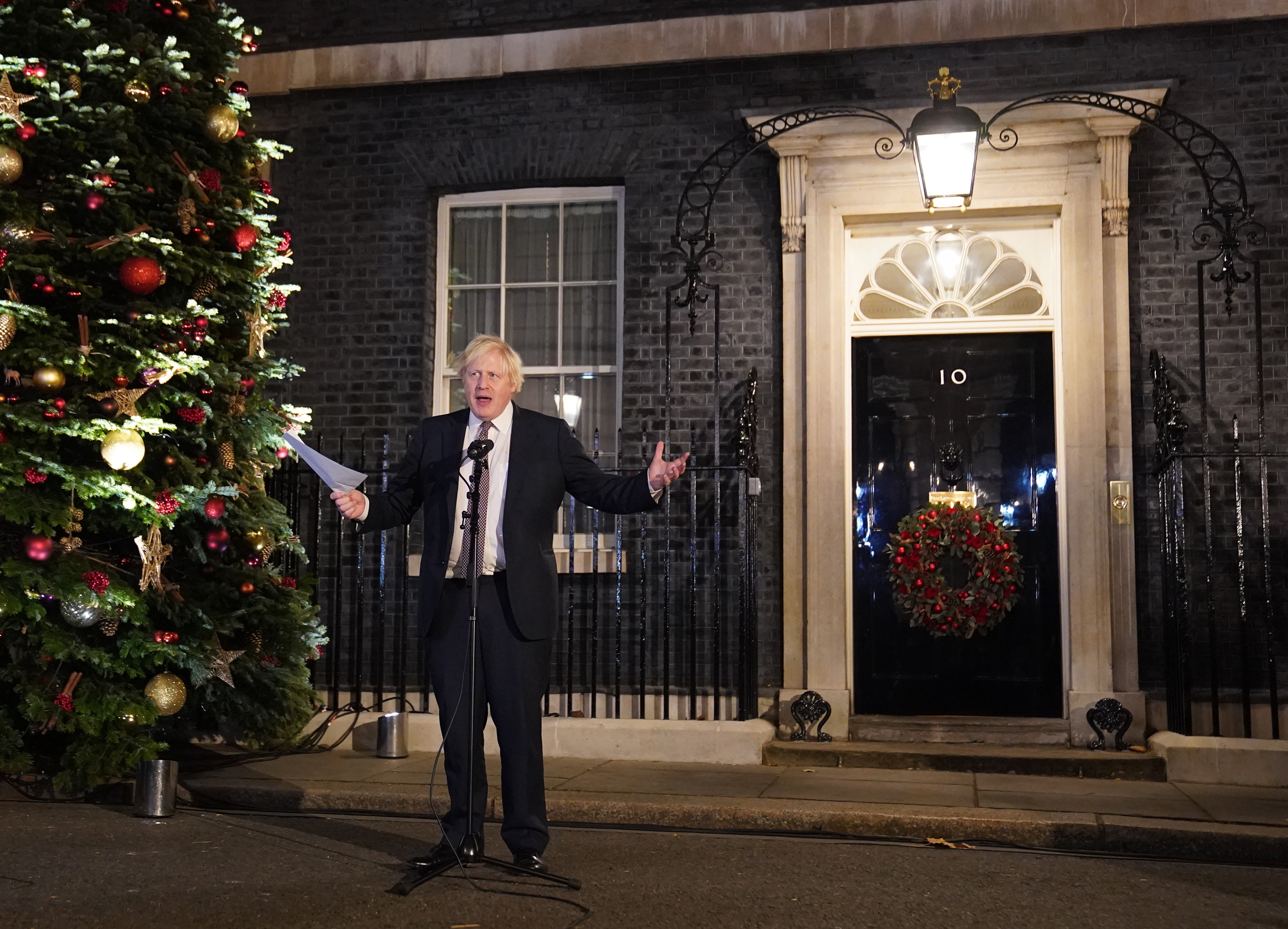When a political scandal is mocked by Ant and Dec – MPs start to worry
Reporters at Westminster find it ever easier to elicit disobliging off-the-record comments from Tory backbenchers about Boris Johnson, writes Andrew Woodcock


This week I’ve found myself in the peculiar position of reporting on Westminster rumours about the removal of a prime minister who by all rights ought to be absolutely secure in his position.
Elected less than two years ago on a landslide and sitting on a comfortable 79-seat majority, with Brexit delivered and a successful Covid-19 vaccination campaign, Boris Johnson would normally be expected to be unshakeable as Tory leader and PM.
Keir Starmer may have upped his game and hoisted Labour a few points ahead of the Conservatives in the polls, but that is only to be expected midway between general elections. Around this point in his stint as leader, Ed Miliband briefly enjoyed a 12-point advantage over David Cameron, only to collapse to defeat at the ballot box two years later.
However, there is no doubt that discontent is running deep among Conservative MPs, many of whom are eyeing the narrow majorities they secured in improbable Tory territory in 2019 and wondering whether Johnson is becoming a hindrance rather than a help to their chances of re-election.
Loyalty to the PM is wearing thin after a period which has seen his government raise taxes to their highest sustained level since the 1950s, seen his party mired in a sleaze scandal, put MPs’ second jobs under threat, handle announcements on railways and social care so poorly that he won negative headlines while splashing out huge sums, reintroduce Covid restrictions and now launch a humiliating inquiry into lockdown-breaching parties in his own home.
When a political scandal breaks through to the general public to the extent that it is the subject of TV mockery by Ant and Dec, MPs start worrying seriously whether a seismic change in mood among voters is on its way.
Johnson was chosen as leader because he was seen as an election-winner, not because he was at the head of a particular ideological faction in the party. Many Tory MPs who rallied behind him over Brexit have been horrified to find him governing as a big-spending, big-state interventionist, rather than delivering the kind of low-tax, low-regulation administration they were hoping for.
Now the extension of mask-wearing and imposition of Covid passes – and prime ministerial hints that he may be considering mandatory vaccination – have provoked more into open rebellion on the Tory backbenches, with the prospect of dozens voting against the government on “Plan B” on Tuesday.
Reporters at Westminster find it ever easier to elicit disobliging off-the-record comments from Tory backbenchers about their leader. And the number ready to voice their anger and frustration in public is rising fast.
None of this, of course, amounts to the 55 letters of no confidence which must be sent to 1922 Committee chair Sir Graham Brady to trigger a leadership contest. But Conservatives have shown themselves ruthless in the past in shedding leaders who they calculate have outlived their purpose.
The most recent example of course is Theresa May in 2019, and before her Sir Iain Duncan Smith, despatched in short order in 2003. But the most telling comparison may be with Margaret Thatcher, who was brutally ejected in 1990 despite commanding a large majority and remaining the darling of a large section of the party, because MPs feared for their seats in an impending election against a far-from-dominant opposition.
Now, Thatcher had been in office for more than a decade by that point and was seen by many as past her prime. But if there is a message for Johnson from her downfall, it must surely be that when the tide turns any leader can be swept aside, no matter what their achievements or their previous popularity.
Yours,
Andrew Woodcock
Political editor






Join our commenting forum
Join thought-provoking conversations, follow other Independent readers and see their replies
Comments